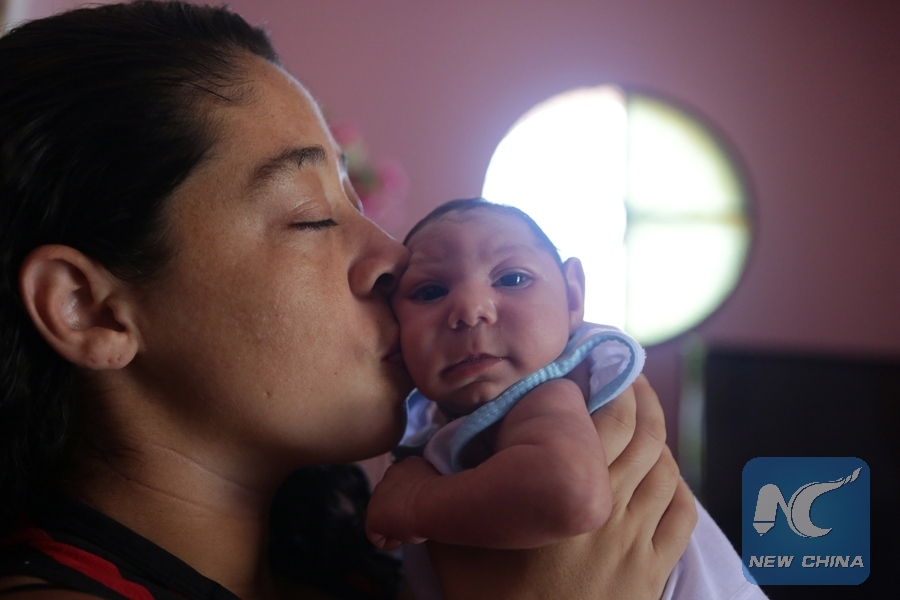
File photo taken on Feb. 4, 2016, shows Pollyana Rabello (L), holding her baby, Luiz Philipe, who was born with microcephaly, in their house in Marica, Rio de Janeiro state. (Xinhua/Daniel Castelo Branco/Agencia o Dia/AGENCIA ESTADO)
WASHINGTON, June 8 (Xinhua) -- One in 20 pregnant women in the U.S. territories with confirmed Zika virus infection had a baby or fetus with Zika virus-associated birth defects, according to a government report released Thursday.
Among the women with confirmed Zika infection during the first trimester, eight percent, or nearly one in 12, had a baby or fetus with Zika virus-associated birth defects.
This report, the first from the U.S. territories, represents the largest number of completed pregnancies with laboratory confirmation of Zika virus infection to date, said the U.S. Centers for Disease Control and Prevention (CDC) report.
"As these latest findings illustrate, Zika virus poses a serious threat to pregnant women and their babies, regardless of when the infection occurs during the pregnancy," CDC Acting Director Anne Schuchat said in a statement.
"Women in the U.S. territories and elsewhere who have continued exposure to mosquitoes carrying Zika are at risk of infection. We must remain vigilant and committed to preventing new Zika infections."
The new analysis, published in the CDC's Morbidity and Mortality Weekly Report, reviewed the cases of 2,549 women with possible Zika virus infection who completed their pregnancies, of which 1,508 had confirmed Zika virus infection.
In this report, more than 120 pregnancies resulted in Zika-associated birth defects.
The data reported to the Zika pregnancy and infant registries were from American Samoa, the Commonwealth of Puerto Rico, the Federated States of Micronesia, the Republic of Marshall Islands, and the U.S. Virgin Islands from Jan. 1, 2016, to April 25, 2017.
These findings from U.S. territories are consistent with a recent CDC report of primarily travel-associated Zika virus infections from the 50 U.S. states and the District of Columbia showing that five percent of completed pregnancies with possible Zika virus infection resulted in an infant with a possible Zika virus-associated birth defect.
Among pregnant women in U.S. territories with confirmed Zika virus infection, the proportion affected by Zika-associated birth defects varied by trimester of diagnosis of Zika infection: eight percent in first trimester, five percent in second trimester, and four percent in third trimester.
"This report reinforces earlier guidance that preventing Zika virus infection at any time during pregnancy is critically important given the severity of its associated birth defects," the CDC statement said.
"Pregnant women living in areas with ongoing local Zika virus transmission are at continued risk of developing infection."

